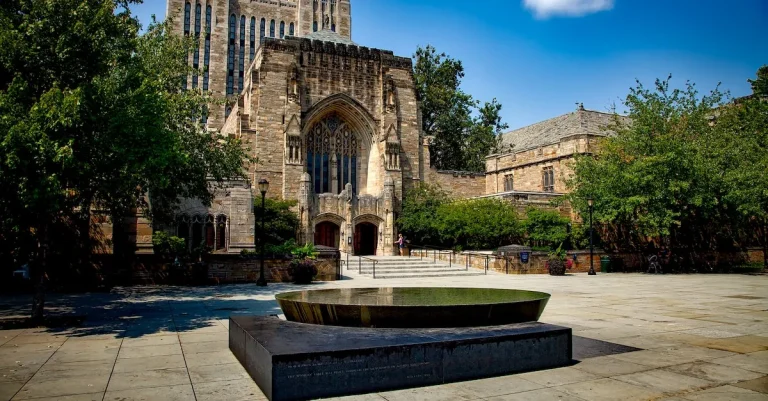Why Is Houston So Cheap? A Deep Dive Into Houston’S Low Cost Of Living
If you’ve ever considered moving to Houston, Texas, you may have noticed that it seems surprisingly affordable compared to other major US cities. In fact, Houston boasts one of the lowest costs of living of any metropolitan area in the country. But why exactly is Houston so cheap? In this comprehensive guide, we’ll explore the many factors that contribute to Houston’s budget-friendly status.
If you’re short on time, here’s a quick answer to your question: Houston has lower living costs due to its business-friendly policies, ample land supply, low housing prices, lack of zoning laws, minimal public transit, and lower state and local taxes.
Houston’s Pro-Business Environment Keeps Costs Down
One of the main reasons why Houston is known for its low cost of living is its pro-business environment. The city has a reputation for being business-friendly, which attracts companies from various industries. This pro-business stance helps keep costs down for both businesses and residents alike.
Texas Offers Incentives to Attract Businesses
One way Houston keeps costs low is by offering attractive incentives to businesses. Texas has a long-standing tradition of providing tax breaks and incentives to companies that choose to set up operations in the state.
These incentives can include tax abatements, grants, and other financial perks that help reduce a company’s operating expenses. By attracting more businesses, Houston can create a competitive market that drives down prices across various sectors, including housing, transportation, and goods and services.
For example, the Texas Enterprise Fund is a business incentive program that provides cash grants to companies considering relocation or expansion projects in the state. This fund has helped attract major companies to Houston, such as Amazon, which opened a fulfillment center in the city, creating thousands of jobs and boosting economic activity.
Weak Labor Laws and Regulations Reduce Business Costs
Another factor contributing to Houston’s low cost of living is its relatively weak labor laws and regulations. Texas has a reputation for having a business-friendly regulatory environment, with fewer restrictions compared to other states.
This can result in lower labor costs for businesses, as they have more flexibility in terms of hiring, wages, and benefits.
While this may not always be beneficial for workers, it does help keep business costs down, which can indirectly benefit consumers by keeping prices lower. This, in turn, contributes to the overall affordability of living in Houston.
It’s important to note that while Houston’s pro-business environment has its advantages, it’s crucial to strike a balance between attracting businesses and protecting workers’ rights. Finding the right balance can help ensure sustainable economic growth while also maintaining a high quality of life for residents.
Plentiful Land Keeps Housing Prices Affordable
One of the main reasons why Houston has such a low cost of living is the availability of plentiful land, which helps keep housing prices affordable. Unlike other major cities where space is limited and housing is in high demand, Houston has ample land for development and expansion.
Houston Has Room to Grow Outward
Houston is known for its sprawling suburbs and vast urban sprawl. The city has a lot of room to grow outward, which allows for the construction of new housing developments and neighborhoods. This expansion helps to meet the demand for housing and keeps prices relatively low compared to other cities.
Unlike cities with limited space, Houston can continue to accommodate a growing population by developing new areas on the outskirts of the city. This not only provides affordable housing options for residents but also creates opportunities for developers and investors.
Less Geographic Constraints Than Other Cities
Compared to other major cities, Houston faces fewer geographic constraints that limit housing development. The city is located in a relatively flat area with no major natural barriers such as mountains or bodies of water that restrict expansion.
This lack of geographic constraints allows for more flexibility in the design and construction of housing projects. Developers have the freedom to build on open land, which helps keep construction costs down and ultimately leads to more affordable housing options for residents.
Additionally, the absence of geographical limitations allows for better urban planning and the ability to create efficient transportation networks. This further contributes to Houston’s low cost of living by reducing commuting times and expenses.
Lack of Zoning Laws Increase Housing Supply
One of the reasons why Houston has such a low cost of living is its lack of zoning laws. Unlike many other major cities in the United States, Houston does not have strict regulations on land use and development.
This means that developers have more freedom to build and expand, leading to an increase in the housing supply.
Developers Have More Freedom
In Houston, developers have more freedom to decide where and what type of buildings they want to construct. This lack of strict regulations allows developers to respond quickly to market demands and build housing units that meet the needs of the growing population.
As a result, there is a continuous supply of new housing options, which helps to keep the prices affordable.
Allows for Denser, Multifamily Housing
Without zoning laws limiting the density of buildings, Houston has been able to accommodate denser and multifamily housing options. This means that developers can build high-rise apartment buildings and townhomes, which can house more people in a smaller area.
The availability of denser housing options helps to meet the demand for affordable housing in the city.
According to a study conducted by the Mercatus Center at George Mason University, Houston’s lack of zoning laws has contributed to a 46% increase in the housing supply compared to cities with strict zoning regulations.
This increase in supply has helped to keep housing prices relatively low, making Houston an attractive city for those looking for affordable living options.
Additionally, the absence of zoning laws has also fostered a sense of innovation and creativity in the city’s architectural landscape. Developers have the flexibility to experiment with different building designs and styles, resulting in a diverse and vibrant urban environment.
While the lack of zoning laws in Houston has its advantages in terms of affordability and innovation, it also presents challenges in terms of urban planning and neighborhood integration. It is important for the city to find a balance that promotes growth while preserving the quality of life for its residents.
To learn more about Houston’s housing market and the impact of zoning laws, you can visit the City of Houston Planning and Development Department website.
Minimal Public Transit Reduces Tax Burden
One of the reasons why Houston is known for its low cost of living is due to its minimal public transit system. Unlike other major cities, such as New York or Chicago, Houston has a car-centric culture that places a heavy emphasis on personal vehicles.
This means that there is less demand for public transportation, resulting in lower taxes allocated for its development and maintenance.
Car Culture Keeps Public Transit Investment Low
Houston’s car culture is deeply ingrained in its history and lifestyle. The city is vast and spread out, with a sprawling suburban landscape that requires residents to rely heavily on cars for transportation.
The lack of a robust public transit system can be attributed to the fact that many Houstonians prefer the convenience and flexibility of driving their own vehicles. As a result, there is less pressure on the government to invest in public transit infrastructure.
Additionally, the city’s rapid growth and urban sprawl have made it challenging to develop an efficient and comprehensive public transit system. Building and maintaining infrastructure can be costly and time-consuming, especially when trying to accommodate a city as large as Houston.
The car-centric nature of the city has allowed it to prioritize road construction and maintenance over public transit projects.
Less Government Spending on Infrastructure
Another factor contributing to Houston’s minimal public transit system is the city’s approach to government spending. Houston is known for its low taxes and limited government intervention, which translates into less funding for public infrastructure projects.
While this approach has its advantages, such as attracting businesses and fostering economic growth, it also means that public transit initiatives receive less financial support.
Compared to other major cities with extensive public transit networks, Houston has allocated fewer resources to public transportation. The city government’s focus has been on other areas such as education, healthcare, and public safety.
This limited investment in public transit infrastructure has resulted in a less developed and less expensive system in Houston.
Lower Taxes Compared to Other Cities
One of the main reasons why Houston is known for its low cost of living is due to its lower taxes compared to other cities. Let’s take a closer look at the tax advantages that Houston offers.
Texas Has No State Income Tax
One major advantage that Houston holds over many other cities is that Texas does not have a state income tax. This means that residents of Houston are able to keep more of their hard-earned money in their pockets.
In contrast, states like California and New York have higher state income tax rates, which can significantly impact the overall cost of living for residents. Not having to pay state income tax is a huge financial benefit for those living in Houston.
Property Taxes Are Moderate
Another factor that contributes to Houston’s low cost of living is its moderate property tax rates. While property taxes do exist in Houston, they are generally lower compared to other major cities in the United States.
This is good news for homeowners as it means lower monthly mortgage payments and overall housing costs. It’s worth noting that property tax rates may vary depending on the specific area within Houston, so it’s important to do thorough research before making any real estate decisions.
According to a recent study conducted by the Tax Foundation, Texas ranks among the top states with the lowest property tax rates in the country. This is yet another reason why Houston residents enjoy a lower cost of living compared to their counterparts in other cities.
Conclusion
In summary, Houston has been able to keep costs of living low thanks to business-friendly policies, lack of zoning restrictions, a car culture, and relatively low tax rates. The city has more available land and housing supply compared to other major metros. While minimal public transit and weak regulations have downsides, they enable more affordable housing and consumer prices overall. If you’re looking for an economically vibrant big city where your dollar stretches farther, Houston is a great option.








